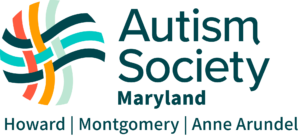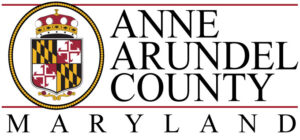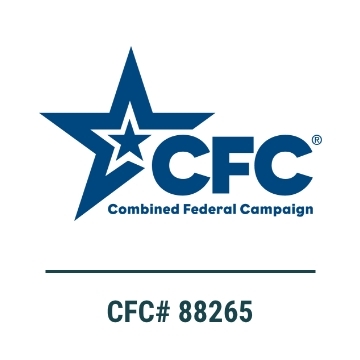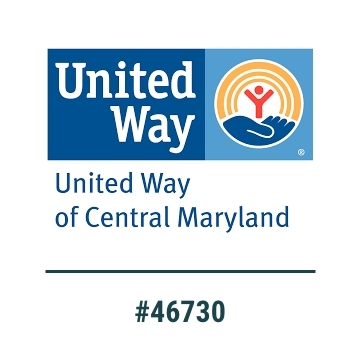Whether it’s your first IEP meeting, or you’re a seasoned veteran, we’ve all been at the IEP table, looked around the room and wondered: who are all these people, and why are they at this IEP meeting? You know their faces and names, but do you know what they really do? Of course everyone is there for the same reason, to support the student succeeding in school and attaining the goals on his or her IEP/IFSP, but who does what, and how do they work together to get the job done? Here is a quick breakdown of many of the people you may see around the table.
Instructional Team Leader (ITL)
Works under the direction of the building principal to provide leadership in the instructional program at that school. Assumes responsibility for the organization and administration of the special education team.
Pupil Personnel Worker (PPW)
Works with families to help students who are frequently absent or late to school, or experiences serious problems adjusting to school. PPWs also help families find community resources to lend assistance when needed.
Adapted Physical Education Instructor (APE)
Helps students with a disability participate in the general education physical education program or a specially designed physical education program as prescribed in the student’s IEP.
Administrator
Provides on site leadership for the instructional program. The school principal, assistant principal or a designate attends meetings and can serve as the chairperson of the team.
Assistive Technology Team (AT)
Observes, evaluates, and provides consultation services for students who need augmentative communication systems or adaptations involving technology. The team maintains a resource center with devices, materials, and information and provides training to parents and staff members.
Behavior Specialist
Helps construct behavior intervention programs to address the needs of students with behavior challenges. They also design ongoing staff development opportunities for teachers and instructional assistants.
Couneslor
Provides lessons designed to help students gain the knowledge and skills appropriate for their developmental level. Services include individual or group counseling, consultation with parents, teachers and other educators or referrals to other school support services or community resources.
Elementary Reading Specialist
Works with staff members to organize and plan effective instruction, communicate information about language arts and reading, provide ongoing staff development, and initiate and oversee programs to assist students in need of reading intervention. They also provide ongoing instruction to individual or small groups of students in need of a program to accelerate their reading growth.
General Education Teacher
Provides educational and instructional service in the general education classroom. They may also provide general modifications, some accommodations, and testing modifications to students as written in their IEP or 504 plan.
Itinerant Teacher of Students with Visual Impairments
Provides assessment, consultation, and individualized instruction in special techniques used by students who having a visual impairment, including blindness, which adversely affects their educational performance. The techniques include the use of adaptive equipment, Braille, and orientation and mobility instruction.
Itinerant Teacher of Students with Hearing Impairments
Provides consultation and instruction in total communication, language development, auditory training, and skills needed in the classroom setting. Consultative services include meetings with school staff members, parents, educational interpreters, and the audiologist.
Occupational Therapist
Provides activities in the areas of perceptual fine motor, sensory motor, oral motor, and self-help skills. A treatment program may also include activities to facilitate typical movement patterns as well as the design and use of adaptive materials and equipment within the educational setting.
Physical Therapist
Facilitates the typical movement for gross motor skills such as rolling, creeping, sitting, standing, and walking. In addition, the physical therapist addresses building accessibility issues and assists in the selection and adaptation of equipment that may be needed to improve a student’s posture or functioning within the school setting.
Psychologist
Provides consultation and evaluation in the areas of cognitive development, social-emotional development, and behavioral intervention. The school psychologist may conduct observations to gather information to assist other service providers in implementing the IEP, IFSP, or 504 plans. In addition, parent counseling and training may be provided on a short-term basis when appropriate.
Special Education Teacher
Provides educational and instructional experiences for a student and may serve as the service coordinator. Special education services are provided through individual, small group, and large group instruction. Direct services may be provided in a separate room or the general education classroom. Consultation with general educators is an integral part of the service.
Speech-Language Pathologist
Works with a student to help develop skills to be successful listeners and speakers. The speech-language pathologist may also work with other staff members to develop augmentative communication systems that may include using sign language, picture boards, or voice output devices.
Resource Teachers:
Serves as a support to students, parents, staff, and the community resource providers to enhance educational programming for students with disabilities. The resource teacher works closely with teachers, administrators, curriculum colleagues, and parents to offer assistance, promote collaboration between general and special educators, and monitor IEP implementation. In addition, the resource teacher supports students, staff, and families during transitions between levels and assists school staff in implementing best instructional practices.
English for Speakers of Other Languages Specialist (ESOL)
Consults with parents and teachers about language development and educational needs of students whose primary language is not English.
Service Coordinator
Selected by the IEP team or for children under the age of three by the Individualized Family Service Plan development team. Responsibilities include serving as a family’s primary contact for questions and concerns, participating with the IEP team or IFSP team in the development or revision of a child’s IEP or IFSP, assisting a child in gaining access to the services recommended in the IEP or IFSP, collecting and synthesizing evaluation reports, and implementing relevant procedures from the law.
Social Worker
School social workers offer insight on the general emotional/behavioral factors involved with the specific student and how they pertain to that student’s education. The social worker meets with the student over the course of the IEP to discuss issues relating to psychoeducation, social interactions, interpersonal skills, family dynamics, and academic success. The social worker can also provide insight on the student’s social skills and awareness of others and its effect on the student’s ability to learn. If the student has significant behavioral problems, then the social worker may play a role in designing and implementing a Behavior Intervention Plan specific to the student. School social workers also assist families in finding resources in the community.
Work Study Coordinator
Works in conjunction with the IEP teams to deliver Work Study services to students who require assistance while seeking and maintaining supported employment. The teachers collaborate with community providers to develop appropriate work experiences and also serve as a transition resource for students and families who are 14 years of age and older. Where appropriate, the teachers also provide students with travel training.
Home and Hospital Teacher
Instructs students on an individual basis in a home, hospital or community setting in a variety of subject areas for the period of time a referred student is out of school. Home and Hospital teachers act as the liaison among the students, parents, and the home schools to help students remain current with their classes during the time they are unable to attend school.
Nurse
School Health Services strives to enhance academic achievement and student and staff well being through the provision of a comprehensive school health services program. Services include: Chronic disease management and health education, assessments and interventions for emotional and social needs of students, illness and injury assessments and interventions, and health assessments and participation in IEP development and implementation.
Federal law describes the IEP team as including the following members:
– the parents of the child
– not less than one general education teacher of the child (if the child is, or may be, participating in the general education environment)
– not less than one special education teacher of the child, or where appropriate, not less then one special education provider of the child
– a representative of the public agency (school) who is qualified to provide, or supervise the provision of, specially designed instruction to meet the unique needs of children with – disabilities; is knowledgeable about the general education curriculum; and is knowledgeable about the availability of resources of the public agency (this is typically and administrator of person acting as the administration)
– an individual who can interpret the instructional implications of evaluation results
– other individuals who have knowledge or special expertise regarding the child, including related services personnel as appropriate (invited at the discretion of the parent or the agency); and
– the child with a disability (when appropriate).
From the HCPSS Family Support and Resource Center
410-313-7161



























